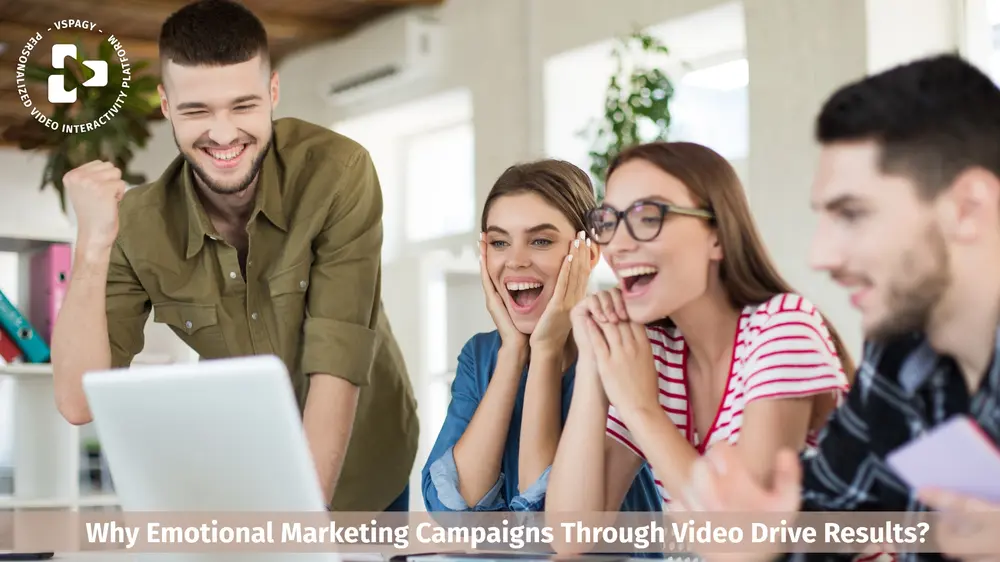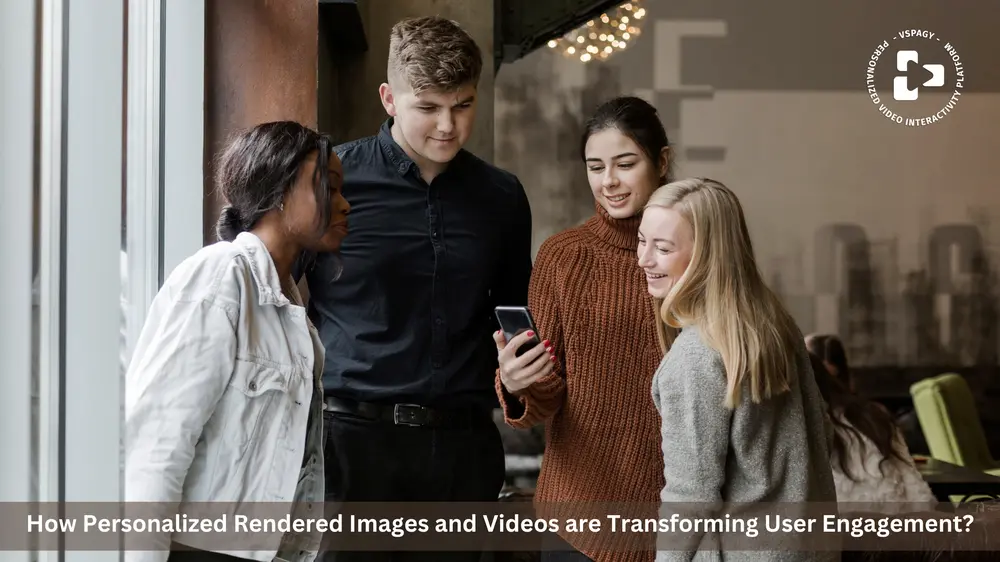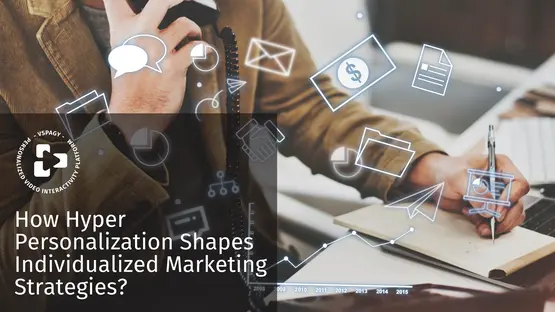Why Emotional Marketing Campaigns Through Video Drive Results?
Apr 28, 2024

Introduction
In the era of fast digitalization, business companies must fight tooth and nail to make their presence felt in a growing, crowded market. Social media and online viewing every other second have also made it even tougher for companies to reach out to the target audience and, most importantly, make an impression. One of the top methods of doing so is emotional video marketing.
Emotional video adverts are designed to relate to, involve, and convey a message to the consumer emotionally. This enables brands to create customer loyalty, trust, and long-term relationships. In this blog, we shall explain why emotional campaigns using videos are very effective and how they can affect brand outcomes in this context.
What is Emotional Video Marketing?
Emotional video marketing is the use of video content to elicit strong emotions and an emotional response from the audience. It is achieved through storytelling, visual, audio, and other affective stimuli. It attempts to connect with the audience emotionally, usually by eliciting a shared sense of happiness, sadness, fear, or excitement.
The basic fact of emotional video advertising is that it can create an emotional relationship between the company and the consumer. If a consumer is emotionally linked to a company, then they will believe in it more, purchase its product or service, and turn into an evangelistic zealot for it.
It is indeed researched that emotionally captivating ads have been shown to drive client interest and firm recall to much greater magnitudes than the standard information-based ad.
Why is Emotion Such an Effective Video Marketing Strategy?
Human beings are wired to respond to emotion, and we remember those things that elicit strong emotional responses. Emotion-based content has repeatedly been shown to be shared, talked about, and remembered more than information-or promotion-driven content.
For instance, if a company uses a video to illustrate a feeling experience or relive a heartbreak moment, then customers will relate to it on their own level. Similarly, it can be complemented with words, sound, and image, and an experience is created that gets imprinted in the viewers' minds even after they have watched the video.
In addition to making long-lasting impressions, emotional videos also impact on customers' behavior. When one's feelings are elated, nostalgic, or moved by a video, there are opportunities ten times bigger than ever that the customer will take some action in the form of buying a product, sharing the video with other people, or even replying to the company on their social media site.
Storytelling is the heart of emotional marketing videos. A story can take a person somewhere else, make them comprehend other people, and evoke strong emotional responses. Be it a resilience story of triumph, a sympathetic story of pity, or an individual story that can be conveyed through the life of the audience, storytelling in video marketing has the power to unite the brand and audience on another level.
In emotional video advertising technology, storytelling becomes the force behind what makes the message memorable. Characters, narratives, and feelings narrated within the video make people connect with the message on a personal level. A storytelling video not only reaches out but personifies the firm and makes it relatable.
Emotional Video Marketing vs. Conventional Marketing
Emotional marketing videos are also better able to capture and retain attention than information videos. Information videos are more inclined to share information and facts about a product or service and, hence, tend to be tasteless and dry at times. Informative as they might be, such videos are hardly capable of establishing a deep emotional connection that is essential in obtaining a long-term relationship with audiences.
Simultaneously, personalized video marketing when done thoughtfully appeal to the sad emotions of people and mobilize them to join, share, and remember. The emotional power cannot be overemphasized - it turns an ordinary ad into an experience right at the heart of the heart of the people that is perceived and understood.
Why Emotional Marketing Campaigns Work?
So why do emotional advertising campaigns work? There are numerous reasons why the campaign will work so well:
Emotions Affect Purchase Decisions: Human beings are emotionally biased when it comes to making purchase decisions. The emotional campaign ad can take advantage of that psychological effect to try to sway purchase decisions in the proper direction.
Brand Loyalty: When humans share emotional connections with a brand, they are said to be loyal customers. Advertising campaigns that work on the emotional level can help brands communicate with their fans over time by generating confidence, love, and sympathy in their fans.
Greater Engagement: Emotion-evoking content is being uploaded to social media, which results in greater views and engagement. People upload emotional video clips because they want to evoke the same in others.
Reminder: Emotional videos are easier to remember than advertisement video commercials. When people remember a brand, they'll likely remember it when they make a purchase.
Risks of Applying Emotion to Internet Video Advertising
Emotional marketing is a powerful idea that can drive engagement and create strong connections with audiences. However, when used improperly or excessively, it can backfire, leading to disengagement, confusion, or even negative brand perception.
Brands need to strike a balance between emotional appeal and clear messaging to ensure that their campaigns remain effective and aligned with their core objectives. Below are some key risks to consider when leveraging emotion in internet video advertising.
-
Overuse of Emotion Without Clear Messaging
Emotional content can capture attention and stir feelings, but relying on it too heavily without a clear message can confuse viewers or dilute the brand's intent. If a video focuses only on emotional storytelling without tying it back to the brand's values or providing a strong call to action, the audience may remember the story-but not the brand. However, when emotional appeal is paired with clear messaging and purpose, it amplifies the campaign's effectiveness. Viewers are not only moved by the content but are also more likely to engage with the brand, act, and retain the message over time.
-
Misalignment with Brand Values
Emotional advertising that doesn't reflect a brand's core values or identity can feel inauthentic or inconsistent, potentially creating confusion or skepticism among consumers. If the emotional tone contradicts what the brand stands for, it may seem forced or distinguished. However, when the emotional tone aligns with the brand's mission and personality, it enhances authenticity and trust. This alignment reassures the audience that the brand is genuine, making the emotional message more impactful and helping to build long-term loyalty.
-
Audience Sensitivity and Emotional Reactions
Different audiences respond to emotions in different ways, and what resonates with one group may alienate another. If an ad leans too heavily into sadness, fear, or hardship without careful handling, it can evoke discomfort or even backlash. However, when emotional content is developed with sensitivity and a deep understanding of audience preferences, it can create powerful, positive connections. By respecting emotional boundaries and tailoring messages appropriately, brands can deliver stories that inspire, uplift, and strengthen their relationship with the viewer.
Frequently Asked Questions
Why is emotion such a powerful tool in video marketing?
Emotion implies more engagement and remembering. More remembering and sharing of emotional videos will create more intense relationships with individuals.
What role does storytelling play in emotional marketing videos?
Storytelling makes the brand human. It makes the brand relatable. It tells an emotional journey that speaks to the viewer on an emotional level, creating a connection and making the marketing message have a stronger effect.
How do emotional marketing videos perform compared to traditional, informational videos?
Emotional videos rank higher than information videos through higher engagement, brand recall, and emotional response, resulting in higher consumer behaviour and loyalty.
Are there any risks in using emotion in video marketing that brands should be aware of?
Too much emotion or a brand value mismatch will be ineffective and repel individuals. Brands must find a balance between emotional resonance, credibility, and relevance.
Conclusion
For the most part, emotional video marketing can result in very high returns for brands. Through the insight into the emotional baggage of the individuals with whom they interact, companies can create high-quality, shareable content that inspires commitment, provokes engagement, and generates sales.
It's all about creating quality storytelling that touches the passion and values of the audience as much as it touches the brand itself. With risk comes reward; properly done emotional personalized and interactive video campaign can be a business mover to be at the forefront of the cutthroat online game.
Recommended Articles:
Personalized Rendered Images and Videos are Transforming User Engagement
Personalized Banking Awareness Videos
Role of Interactive Automobile Videos in Modern Marketing




